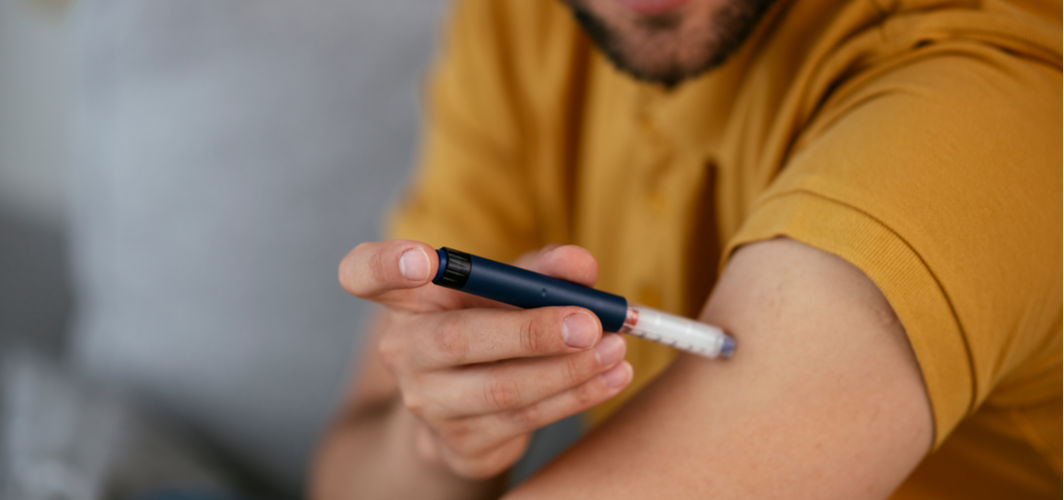Diabetes Management
The Dangers of Diabetic Ketoacidosis
4 min read
By Apollo 24/7, Published on - 05 January 2021, Updated on - 31 August 2023
Share this article
0
2 likes

What is diabetic ketoacidosis?
What are the early warning signs of diabetic ketoacidosis?
- Extremely dry mouth with thirst
- Frequent urination
- Blood glucose levels above 240 mg/dL
- High levels of ketone bodies in the body (can be checked in either urine or blood)
- Pain in the abdomen
- Nausea and vomiting that continues for more than 2 hours
- Weakness and fatigue
- Dry, flushed skin
- Fruity breath that might resemble a nail-polish remover
- Heavy and laboured breathing (also called Kussmaul breathing)
- Mental confusion, irritability and inability to concentrate
- Slurring of speech
- Blurring of vision
- Swelling of the brain, which can make the person feel drunk and behave irrationally.
What causes diabetic ketoacidosis?
- Lack of insulin in the body, either due to missed insulin dose or due to the increased demand of insulin in the body, can trigger ketoacidosis.
- Adverse reaction to insulin can also increase the levels of ketone bodies in the blood.
- Skipping food frequently can increase the levels of ketone in the body.
- Acute infections such as pneumonia or urinary tract infection.
- Medical emergencies such as heart attack or stroke can trigger physiologic stresses in the body, resulting in low insulin production, thereby increasing ketone levels.
- Ketone levels can also spike during pregnancy.
- Use of certain drugs such as corticosteroids, thiazide diuretics, sympathomimetics and sodium-glucose co-transporter 2 (SGLT-2) inhibitors can also trigger ketoacidosis in diabetic people.
Can this dangerous condition be prevented?
- Regular monitoring of blood sugar levels, especially in times of stress or illness.
- Following a strict insulin regimen to make sure that the sugar levels are under control. Discuss with your doctor when and how to increase or reduce the dose of insulin.
- Following the diet and exercise pattern recommended by the endocrinologist and dietician rigorously.
- Checking for ketone bodies with either blood or urine ketone test kit. It is advised to check for ketone bodies every 4 to 6 hours when sugar level spikes to 240 mg/dl or when the person is suffering from an infection (such as cold or flu).
How can diabetic ketoacidosis be treated?
- D: Family/ previous history of diabetes or increased blood sugar levels
- K: Presence of ketone bodies in the urine or blood
- A: Higher levels of acid in the blood
- The patient is given a large volume of fluids intravenously (through the vein) to treat dehydration and to neutralise the acid levels.
- The patient is also given insulin intravenously, one to two hours after the fluids are administered, to lower the blood sugar levels.
- Potassium supplements are given to treat hypokalemia, which is one of the reasons for diabetic ketoacidosis.
- Blood sugar levels, fluid status, acid levels, cardiac status, urine output, blood pressure and electrolyte levels are monitored closely.
- The patient is given antibiotics or other medications in case of any infection that would have triggered ketoacidosis.
Conclusion
Diabetes Management
Leave Comment
Recommended for you

Diabetes Management
Manage Your Diabetes Like A Pro With Apollo 24|7's 12-Week EMPOWER Programme
Diabetes is one of the most common and widespread lifestyle diseases, affecting millions of people worldwide. Keeping the condition under control is a very challenging task. The Diabetes Management Programme by Apollo 24|7 can help you learn how to manage your condition on your own. Read on to learn how.

Diabetes Management
Insulin Therapy: All You Need to Know
Insulin therapy is a treatment for diabetes that involves using insulin to regulate blood sugar levels. It is typically prescribed for people with type 1 diabetes and may also be recommended for those with type 2 diabetes who cannot control their blood sugar through other means like medications, diets and exercises.

Diabetes Management
Consuming Over 6 Teaspoons Of Sugar Daily Increases Your Risk For These Diseases
Consuming over 6 teaspoons of sugar daily increases the risk for various diseases. Excessive sugar intake is linked to an increased risk of obesity, type 2 diabetes, and tooth decay. High sugar consumption can also lead to weight gain, insulin resistance, inflammation, and other metabolic disturbances, contributing to the development of these chronic health conditions. It is important to moderate sugar intake for overall health and well-being.
Subscribe
Sign up for our free Health Library Daily Newsletter
Get doctor-approved health tips, news, and more.
Visual Stories

8 Fruits That are Incredibly Healthy for Diabetes
Tap to continue exploring
Recommended for you

Diabetes Management
Manage Your Diabetes Like A Pro With Apollo 24|7's 12-Week EMPOWER Programme
Diabetes is one of the most common and widespread lifestyle diseases, affecting millions of people worldwide. Keeping the condition under control is a very challenging task. The Diabetes Management Programme by Apollo 24|7 can help you learn how to manage your condition on your own. Read on to learn how.

Diabetes Management
Insulin Therapy: All You Need to Know
Insulin therapy is a treatment for diabetes that involves using insulin to regulate blood sugar levels. It is typically prescribed for people with type 1 diabetes and may also be recommended for those with type 2 diabetes who cannot control their blood sugar through other means like medications, diets and exercises.

Diabetes Management
Consuming Over 6 Teaspoons Of Sugar Daily Increases Your Risk For These Diseases
Consuming over 6 teaspoons of sugar daily increases the risk for various diseases. Excessive sugar intake is linked to an increased risk of obesity, type 2 diabetes, and tooth decay. High sugar consumption can also lead to weight gain, insulin resistance, inflammation, and other metabolic disturbances, contributing to the development of these chronic health conditions. It is important to moderate sugar intake for overall health and well-being.